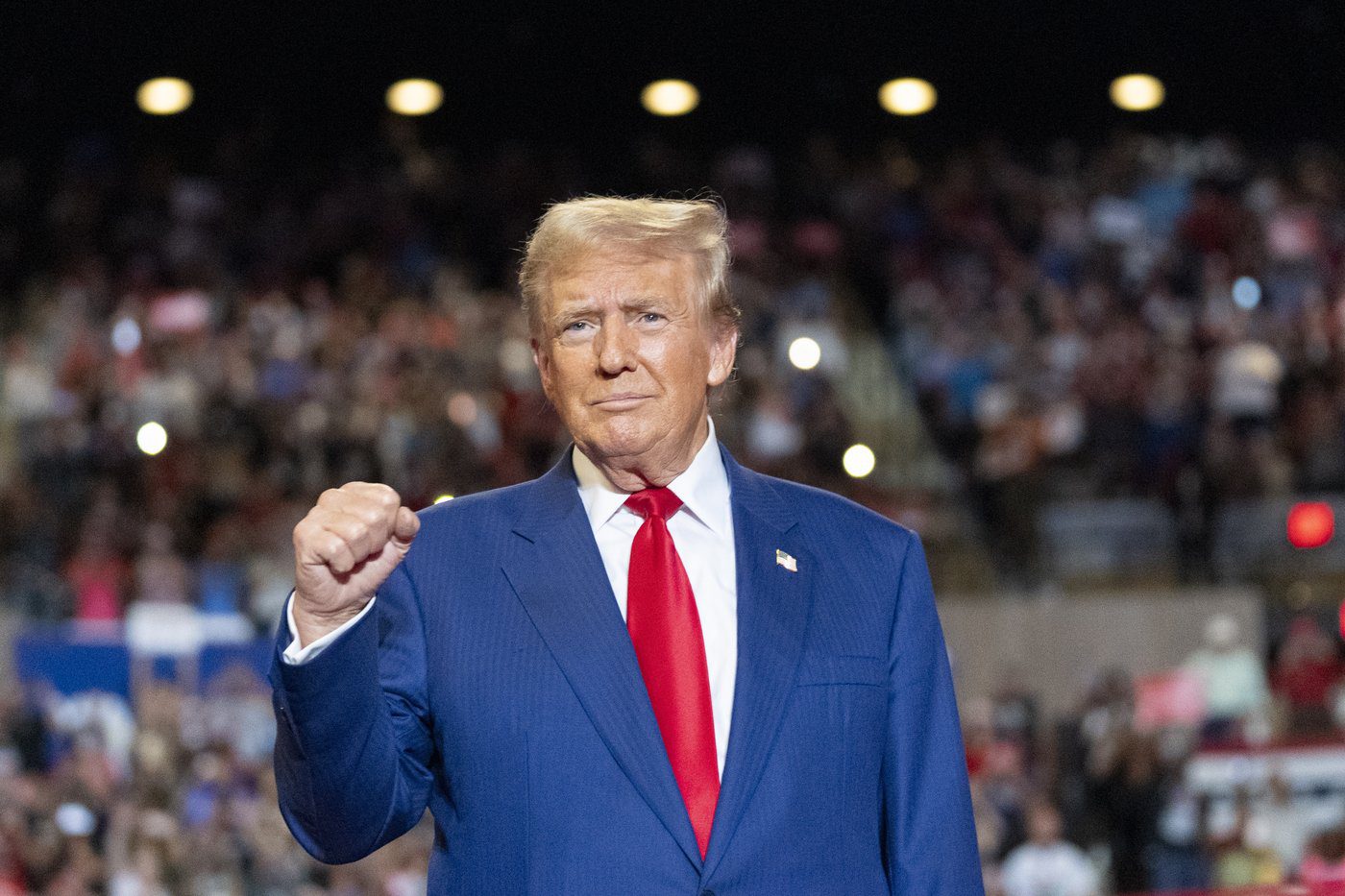The Economist recently examined the after-effects of the Sept. 10 debate between former U.S. Republican president Donald Trump and Democratic vice-president Kamala Harris. More specifically, the venerable publication highlighted what it viewed as Harris’s post-debate bounce.
According to the Sept. 21 piece, The Economist’s poll tracker showed “Kamala Harris’s nationwide lead over Donald Trump has widened to 4.5 percentage points, from 3.8 points on September 10th, the day of their debate. A 0.7-point improvement is small but potentially significant, and gives Ms Harris her biggest lead yet in our tracker.” The magazine also noted that “it takes a while for new polls to show whether the debate moved the needle on polling averages. The needle has now budged.” It even suggested “the true picture may be even rosier for Ms Harris than aggregated scores suggest, since her bounce is still held down by pre-debate polling.”
While this sounded promising, The Economist also recognized that Harris’s post-debate bounce “comes with two caveats.” The first one was straightforward, “it is not the popular vote that determines who wins, but the electoral college, where the outcome will hinge on a handful of swing states.” It’s a point that many political observers either ignore or conveniently forget when it comes to U.S. presidential elections. As for the second caveat, it was even simpler: “a lot could still change.”
That’s exactly what has happened.
A Sept. 24 CNN/SSRS poll noted that “48% support Harris and 47% Trump, a margin that suggests no clear leader in the race.” FiveThirtyEight listed Harris ahead of Trump 48.3 to 45.8 percent as of Sept. 24, which is a margin of error. RealClearPolitics, which is an aggregate, had Harris in front by 47.9 to 45.8 percent on Sept. 24 – and listed Trump ahead by one percent in a recent Quinnipiac poll.
What does this mean? Harris’s post-debate bounce has been supplanted by Trump’s post-post-debate bounce. That’s not terribly surprising: no matter who had won the Sept. 10 debate, an election bounce was always going to be short-lived.
Winning a modern presidential debate is nearly impossible. Political leaders and parties go through massive amounts of preparation for potential questions and follow-ups. While the chances of a knockout blow are very slim, candidates still learn canned (or memorized) lines, facts and figures to hopefully score some quick jabs. They will engage in mock debates with stand-ins who are asked to mimic their political rivals. And while a few mistakes will undoubtedly happen, most pitfalls, trip-ups and holes in logic are typically dealt with during debate prep.
Today’s presidential debates have therefore become predictable, heavily scripted affairs where major party candidates are coached from start to finish. Which isn’t to say there hasn’t been a few presidential debates that ultimately changed the course of an election.
The first general election debate between John F. Kennedy (Democrat) and Richard Nixon (Republican) on Sept. 26, 1960 is still widely regarded as a major turning point. While most radio listeners believed that Nixon had won the debate, the television audience felt that Kennedy won handily. This was largely due to several factors unrelated to policy, including Nixon’s unfamiliarity with this new format and his refusal to wear makeup under the bright television lights. Kennedy handled the moment better and looked more poised throughout the discussion. Although Nixon performed better in the following three debates, fewer TV viewers tuned in and the damage from the first debate couldn’t be rectified.
There’s also the second U.S. presidential debate between incumbent Ronald Reagan (Republican) and Walter Mondale (Democrat) on Oct. 21, 1984. The former had lost the first debate and was only slightly ahead in the polls. Reagan was far more prepared to combat Mondale this evening, and gave the debate performance of a lifetime. He even famously quipped at one stage, “I want you to know also I will not make age an issue of this campaign. I am not going to exploit for political purposes my opponent’s youth and inexperience.” This moment helped turn a close election into a runaway for the Gipper.
The June 27 debate between Trump and President Joe Biden could be thrown into the mix, too.
Biden had a disastrous debate performance against Trump. He stumbled, made little sense and lost his train of thought on several occasions. Trump, who was slightly ahead in most opinion polls, soon took a commanding lead. This was an unexpected turn of events: Trump had lost the popular vote in 2016 (when he beat Hillary Clinton) and 2020 (when he was defeated by Biden). Things would have likely tightened up before the November election. Had this match-up continued, it’s still difficult to imagine a scenario where Trump didn’t win back the White House.
When Biden dropped out in July, a large number of frustrated progressive voters opted to back Harris as his replacement. Biden’s debate performance became a thing of the past. The left-right divide in the ideological rigid U.S. had been recreated, and the odds of a close presidential election had re-materialized. The small post-debate bounce notwithstanding, that’s where things currently stand.
A final thought. Some political pundits and commentators actually suggested the Harris-Trump debate was similar to the Biden-Trump debate, and could turn the tide of the election. Not only was this comparison inaccurate and rather ludicrous, it was never going to happen. History has shown that presidential debates rarely move the political needle in the direction of one candidate on a permanent basis. To paraphrase The Economist, there are simply too many caveats.
Michael Taube, a long-time newspaper columnist and political commentator, was a speechwriter for former Canadian prime minister Stephen Harper.






